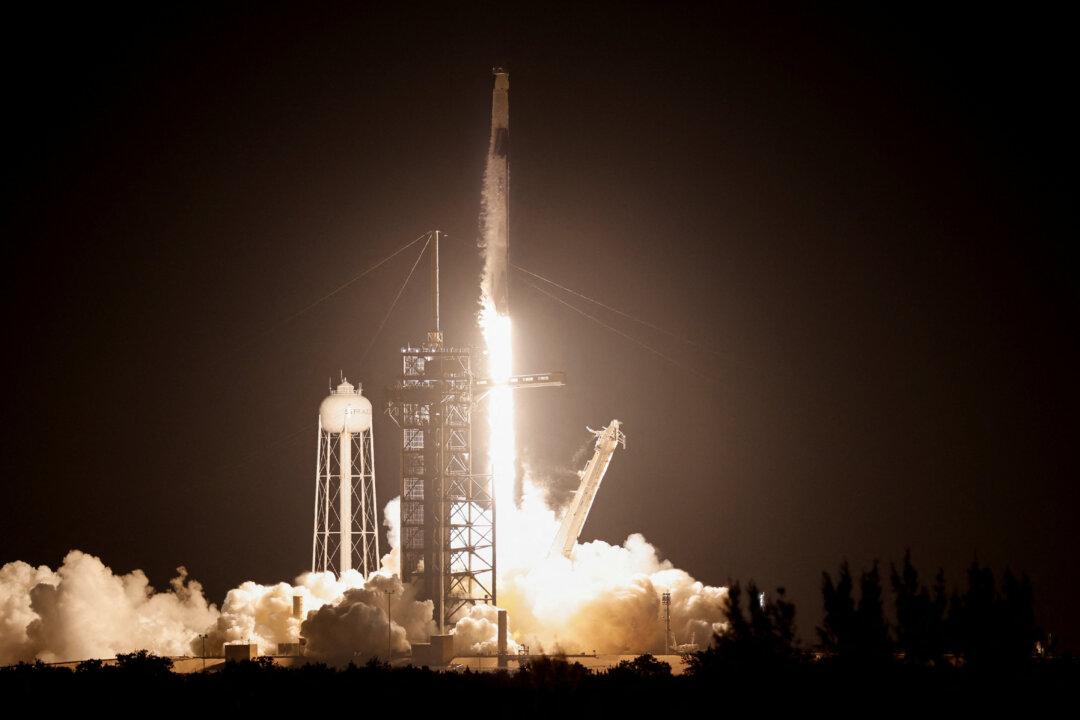WASHINGTON—Elon Musk’s SpaceX on Monday launched a crew of four private astronauts led by a crypto entrepreneur on a mission to orbit Earth from pole to pole, a novel trajectory in which no humans have traveled before.
Maltese investor Chun Wang, a Chinese-born magnate who founded a bitcoin mining company, is the bankroller and commander of the SpaceX mission, named Fram2, a reference to the Norwegian “Fram” ship that pioneered Arctic exploration at the turn of the 20th century.





